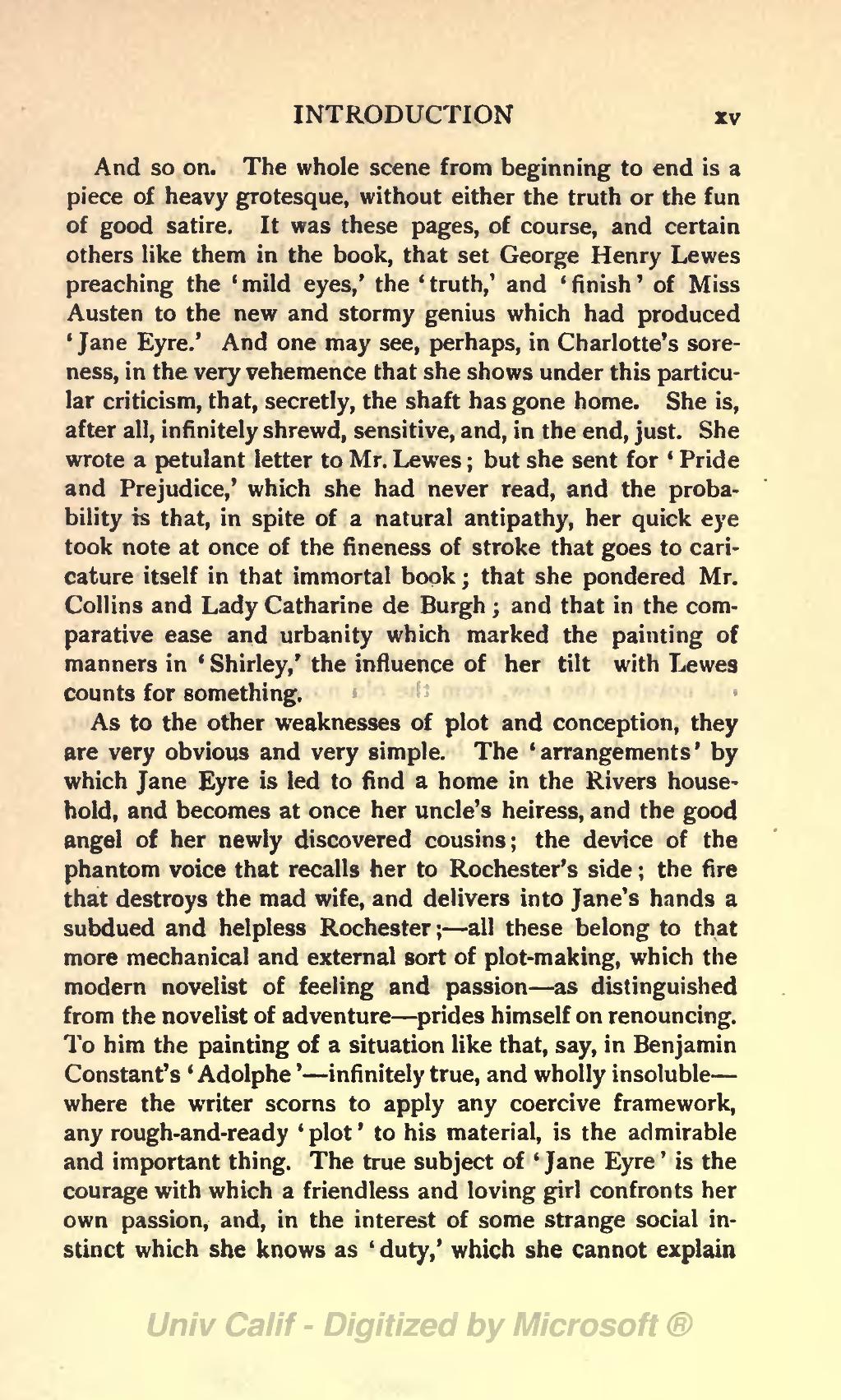And so on. The whole scene from beginning to end is a piece of heavy grotesque, without either the truth or the fun of good satire. It was these pages, of course, and certain others like them in the book, that set George Henry Lewes preaching the 'mild eyes,' the 'truth,' and 'finish' of Miss Austen to the new and stormy genius which had produced ' Jane Eyre.' And one may see, perhaps, in Charlotte's sore- ness, in the very vehemence that she shows under this particu- lar criticism, that, secretly, the shaft has gone home. She is, after all, infinitely shrewd, sensitive, and, in the end, just. She wrote a petulant letter to Mr. Lewes ; but she sent for ' Pride and Prejudice,' which she had never read, and the proba- bility is that, in spite of a natural antipathy, her quick eye took note at once of the fineness of stroke that goes to cari- cature itself in that immortal book ; that she pondered Mr. Collins and Lady Catharine de Burgh ; and that in the com- parative ease and urbanity which marked the painting of manners in ' Shirley,' the influence of her tilt with Lewes counts for something.
As to the other weaknesses of plot and conception, they are very obvious and very simple. The 'arrangements' by which Jane Eyre is led to find a home in the Rivers house- hold, and becomes at once her uncle's heiress, and the good angel of her newly discovered cousins; the device of the phantom voice that recalls her to Rochester's side ; the fire that destroys the mad wife, and delivers into Jane's hands a subdued and helpless Rochester ; all these belong to that more mechanical and external sort of plot-making, which the modern novelist of feeling and passion as distinguished from the novelist of adventure prides himself on renouncing. To him the painting of a situation like that, say, in Benjamin Constant's ' Adolphe ' infinitely true, and wholly insoluble where the writer scorns to apply any coercive framework, any rough-and-ready 'plot' to his material, is the admirable and important thing. The true subject of ' Jane Eyre ' is the courage with which a friendless and loving girl confronts her own passion, and, in the interest of some strange social in- stinct which she knows as ' duty,' which she cannot explain
